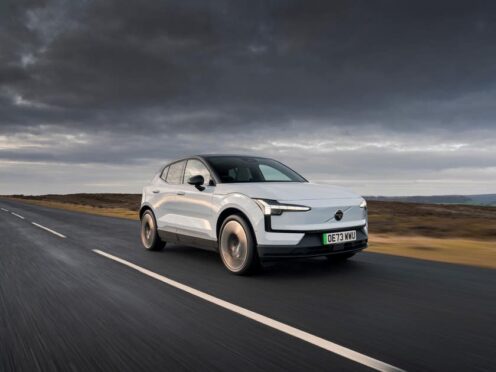What is it?
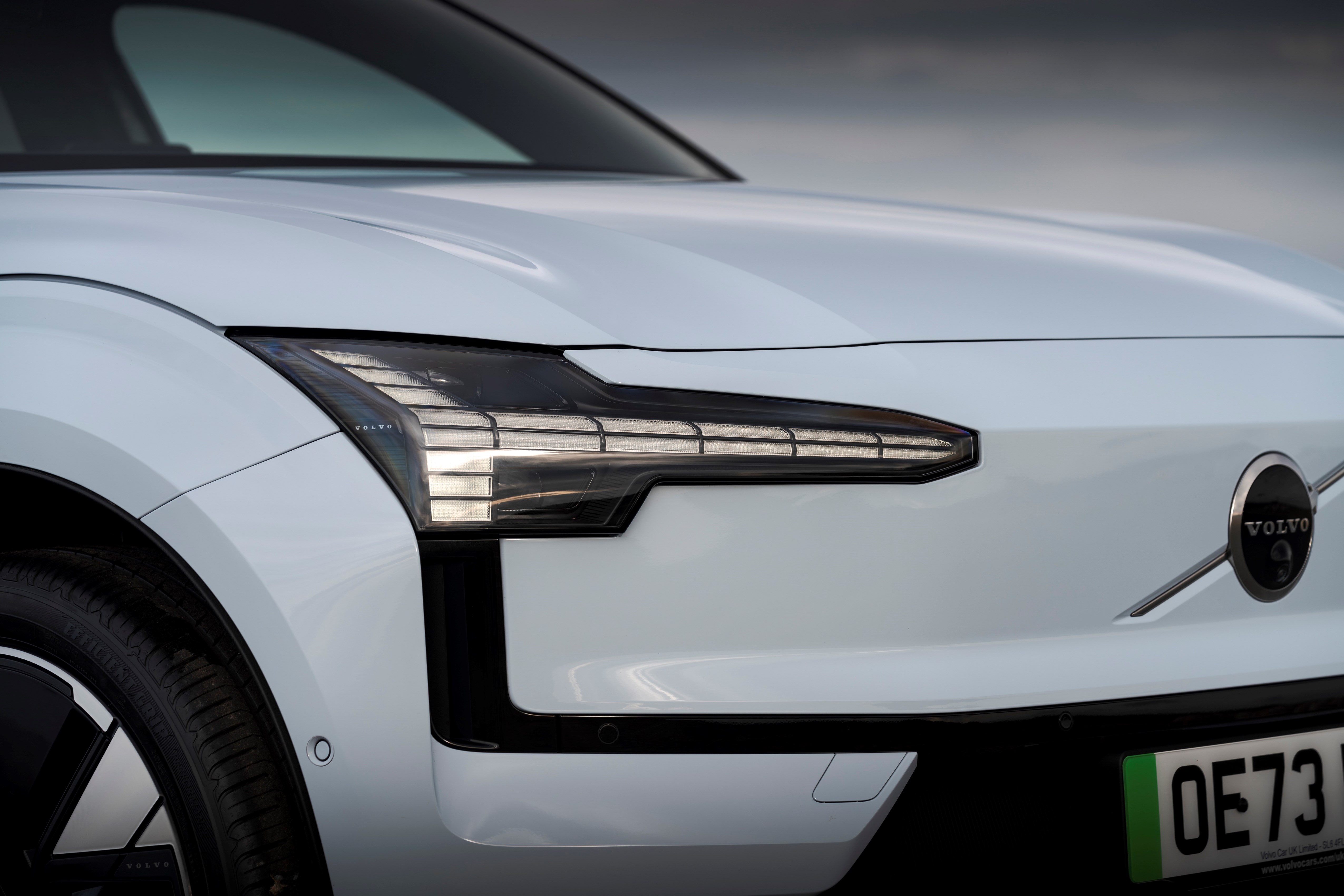
Volvo is quickly expanding its electric vehicle line-up as it hurtles towards an electric future. This car – the EX30 – kicks off a brand new range of EVs for the Swedish brand, introducing boatloads of new technology alongside a fresh new look and interior design.
But the EX30’s arrival isn’t without its challenges. Its rivals are numerous – with key contenders from MG, Hyundai and Smart to name just three – so it really does need to hit the ground running if it has a chance of coming out on top. We’ve been driving it in the UK to see what it’s like.
What’s new?
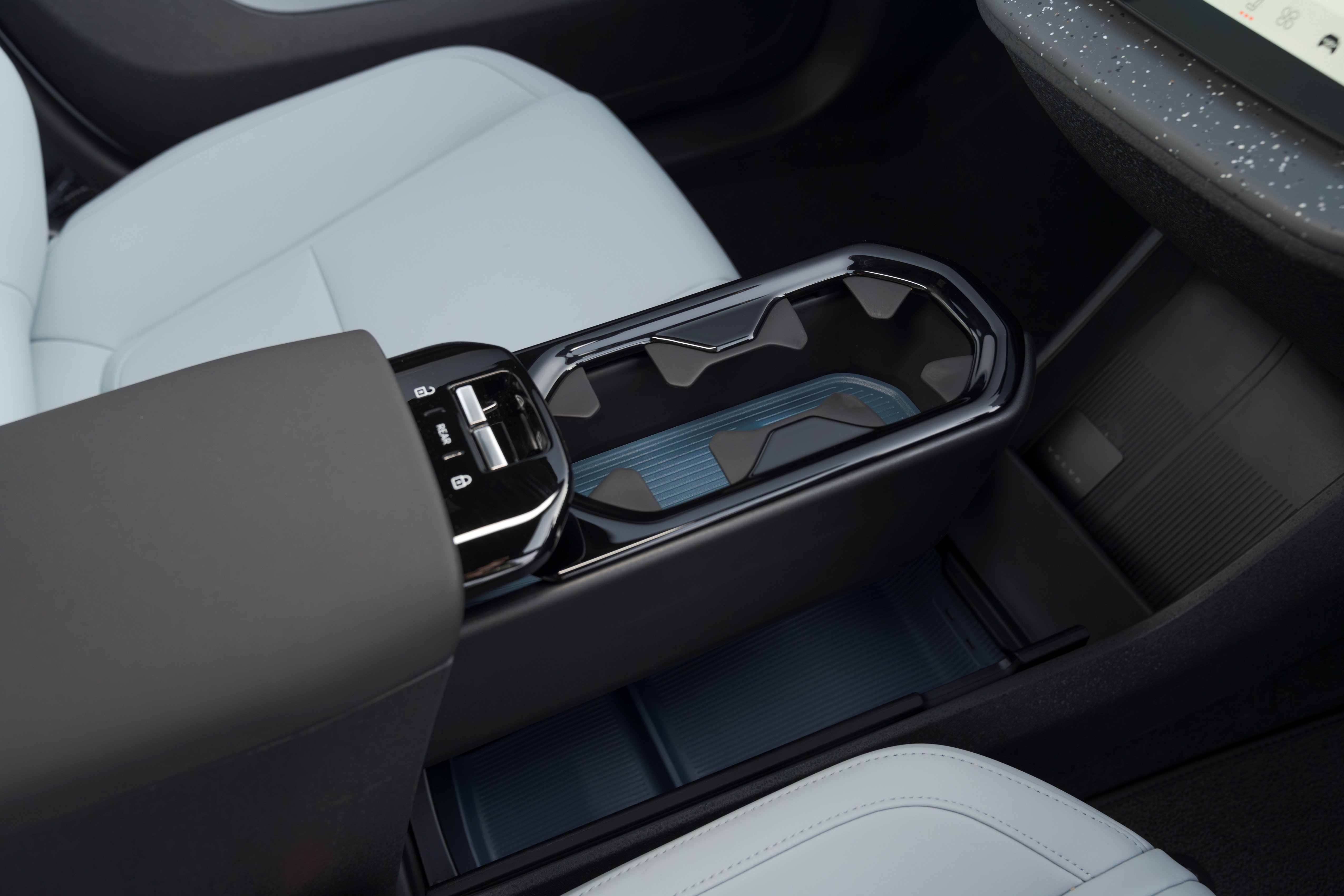
There’s lots to check out on the EX30. Naturally, we’ve got an evolution of Volvo’s typically stripped-back styling on the outside, while inside there’s a greater focus on the main infotainment screen than we’ve seen before – but more on that later. Underneath, you’ll find Geely’s SEA platform, which is also used on the Smart #1. However, Volvo has gone to town on the styling, design and calibration to make sure that the two aren’t all that similar in reality.
As with any Volvo, the EX30 is packed with safety technology too, including a new system which can help prevent occupants from opening their doors into the path of scooter riders or cyclists.
What’s under the bonnet?
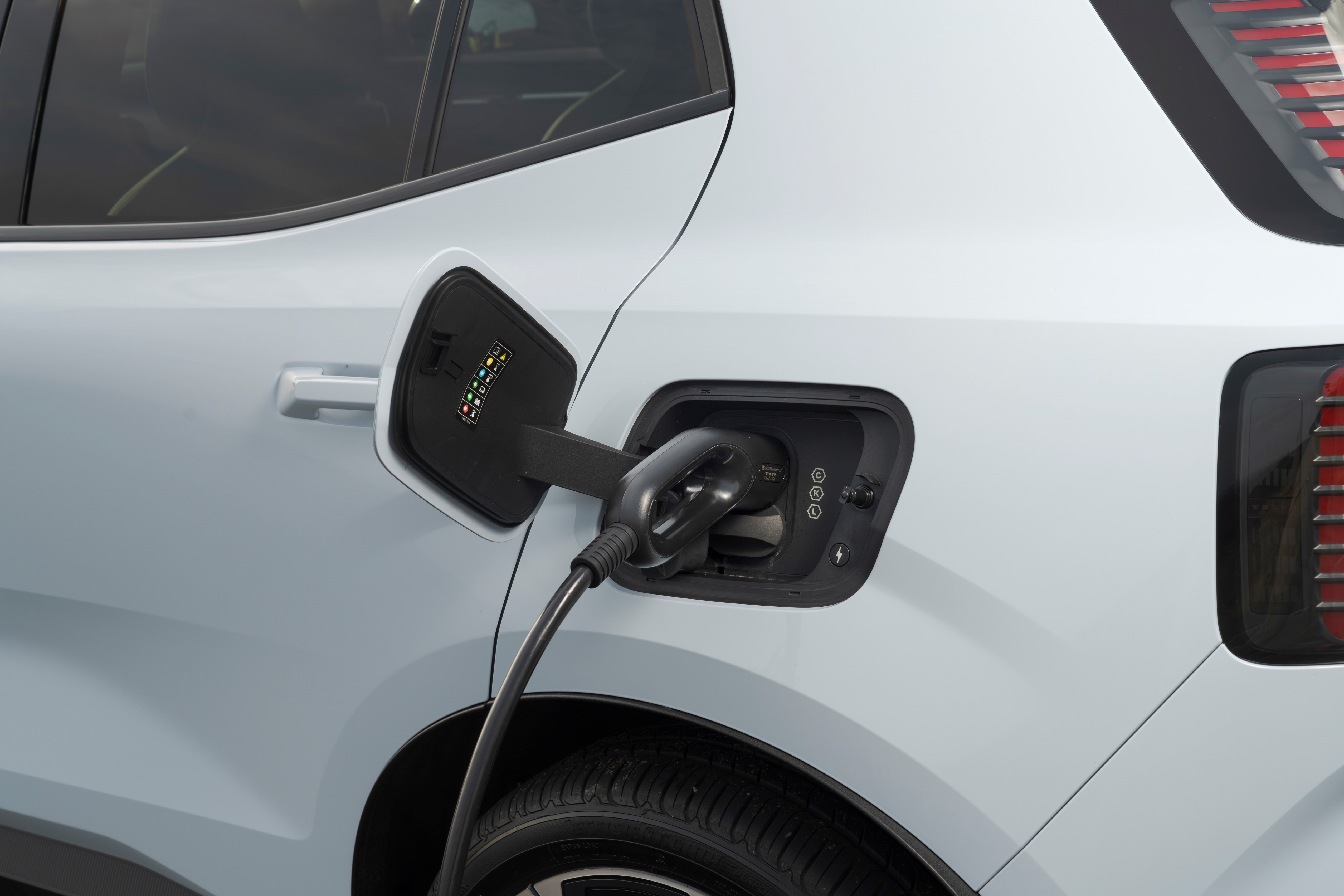
The EX30 is available with a series of powertrains – including an ultra-powerful twin-motor version – but the one we’re in is likely to be one of the most popular. It uses a single electric motor with 268bhp which is linked to a 69kWh battery for a claimed range of up to 294 miles. Thanks to a top-whack charging rate of 153kW, it means a 10 to 80 per cent charge could be conducted in around 30 minutes.
We did encounter a snag when charging the EX30 overnight at a conventional 7kW charger, however. When plugging in, it appeared that it would take over 36 hours to fully charge – an absurd amount of time. However, when investigating, it appeared that the car had limited itself to only accepting 7amps of charge, hence the long charge time. Limit upped, it then dropped to a standard overnight time of 12 hours. Volvo says it is investigating the issue which is likely to be fixed by an over-the-air update.
What’s it like to drive?

Volvo has always had a more comfort-focused approach to driving and, thankfully, this is still evident in the EX30. It’s pleasantly sprung to deal with the worst that the UK’s roads have to offer and means that this Volvo avoids a lot of the sharpness that is present in the latest electric vehicles. The steering is quite light and quick, too, but this makes it great to drive around town. Rearwards visibility isn’t the best due to the rather slim rear screen, but you do get a great view of the road ahead.
The performance in this single-motor version is more than good enough too. While the souped-up twin motor version might be appealing, we’d argue that this version is about right for daily driving. It more than keeps up with regular driving speeds and never feels out of puff – or volts, you could say.
How does it look?
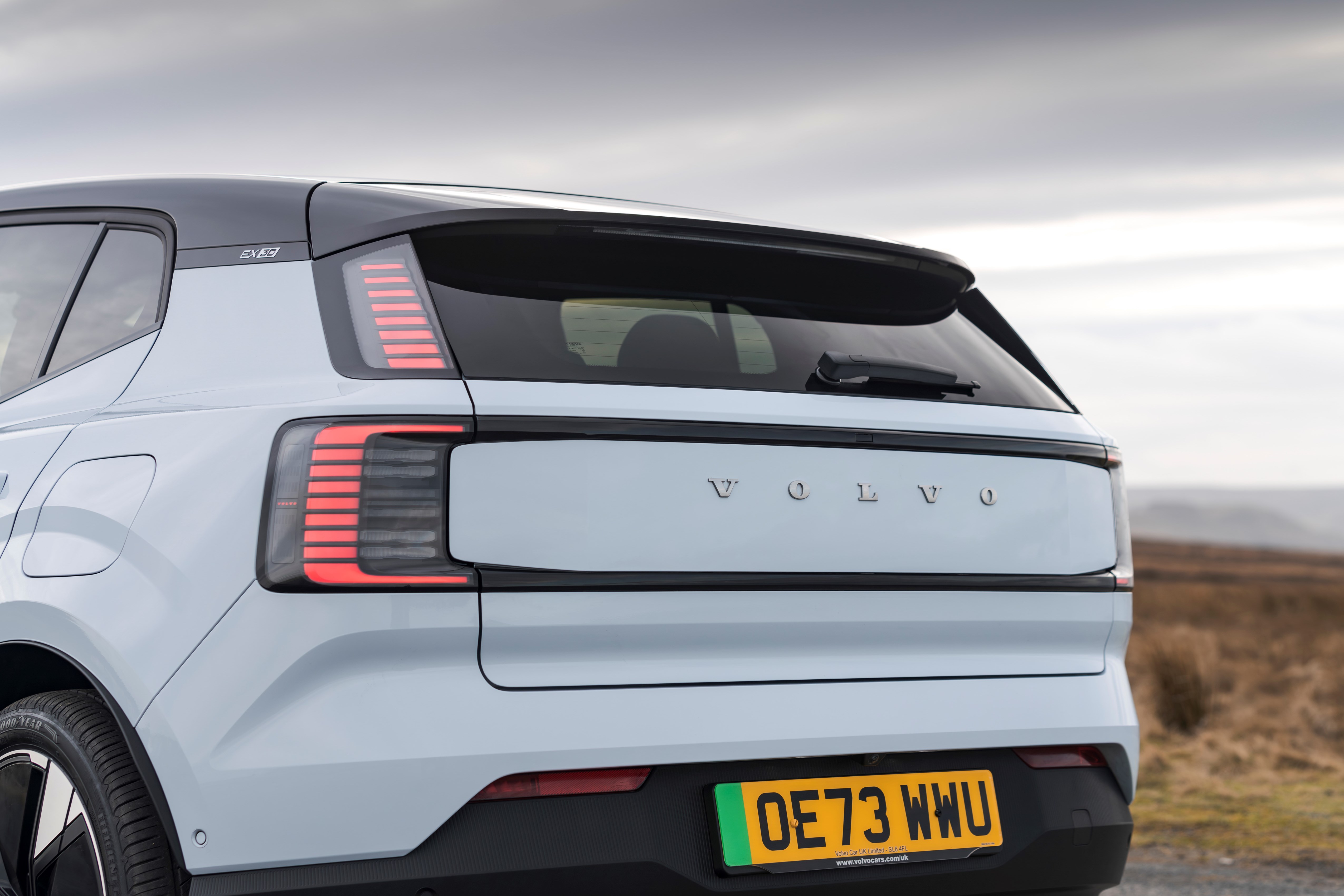
The EX30 feels like a pleasant continuation of Volvo’s styling journey. It’s still recognisable as one of the firm’s cars, but elevated in a way which helps it to stand out a little more than previous models. This isn’t an overly large SUV, either – that title will go to the seven-seater EX90 when it arrives – but there’s still a good amount of presence thanks to neat touches here and there.
The rear of the car looks, to our eyes at least, particularly striking with the full-width section giving the whole EX30 a sense of width. It’s all well executed while a range of colours means there’s scope for a bit of personalisation too.
What’s it like inside?
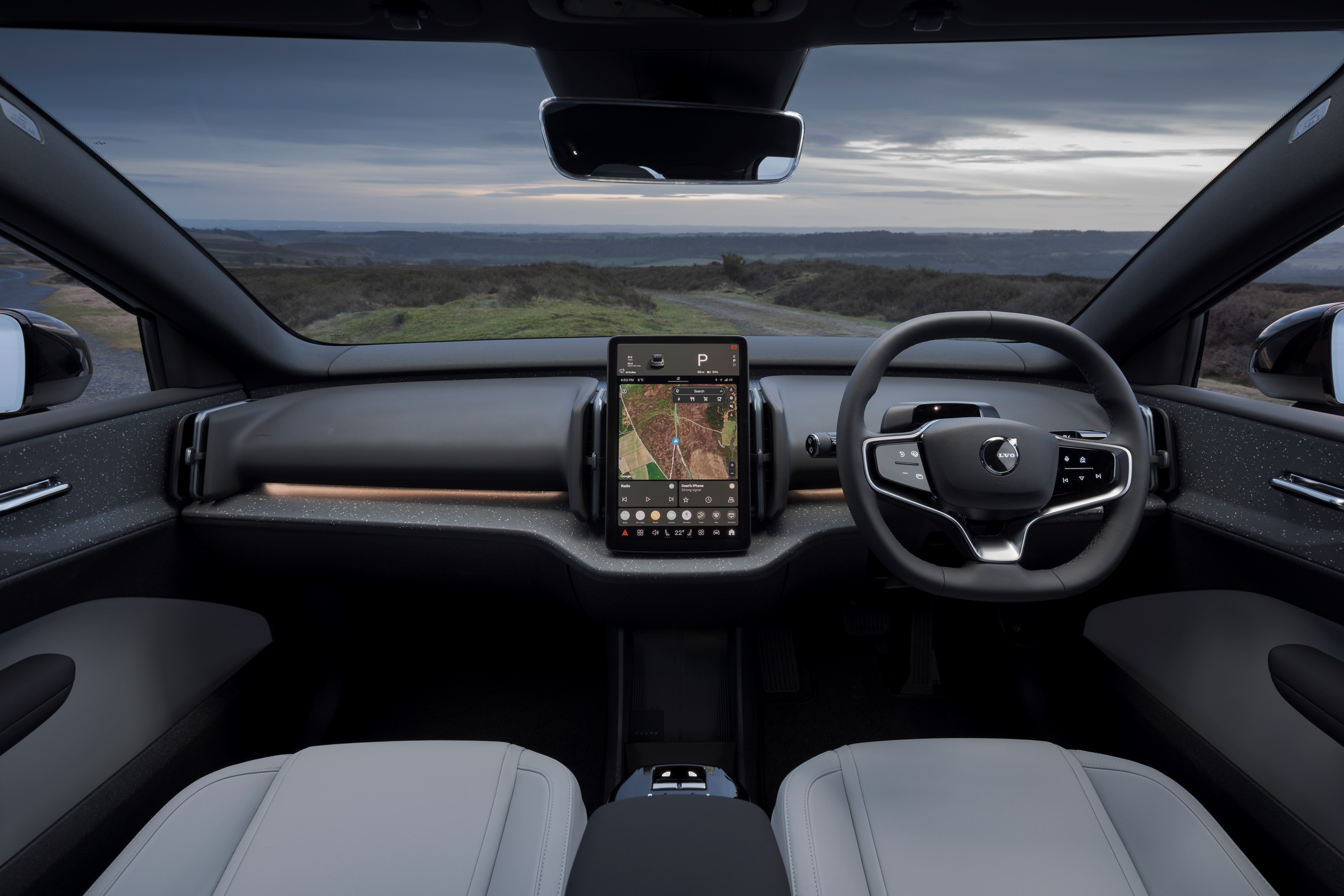
It’s all very stripped-back and clean in the cabin of the EX30. There are largely good materials – spoiled by some harsher plastics lower down – and it all feels pleasantly solid and reassuringly well made. The space up front is good, too, though rear-seat occupants might find themselves feeling a little hard done by in terms of legroom – headroom is adequate, mind you.
The 318-litre boot in the EX30 isn’t the largest – you’ll get 363 litres in the MG4, for comparison – though you can fold down the rear seats to help boost that loads area. Handily, there’s also a storage area under the car’s bonnet which provides an ideal space for storing the car’s charging cables.
What’s the spec like?
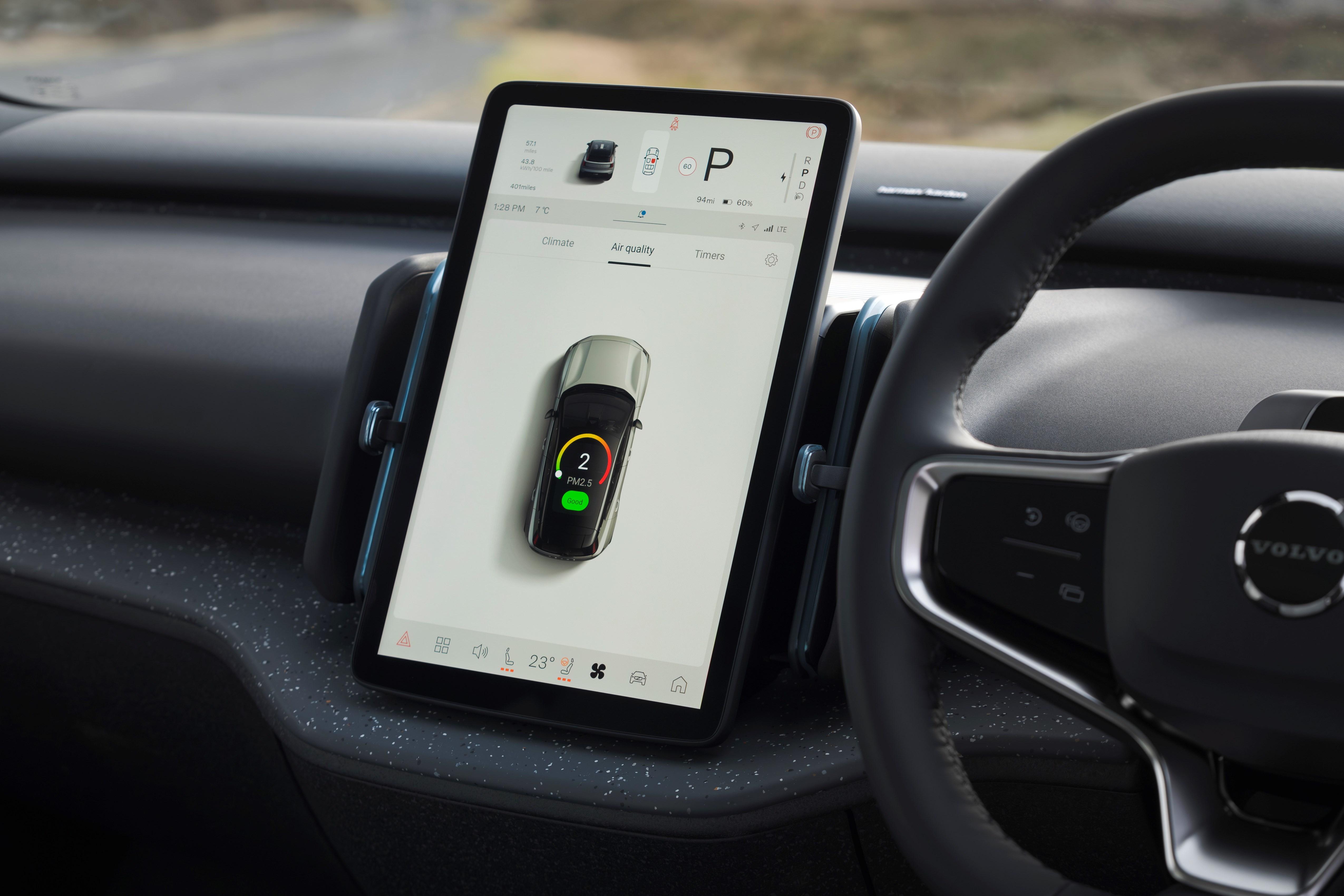
Inside, you’ll find that Volvo has ditched nearly all of the physical controls that you’d find in cars like the XC40 in favour of a totally touchscreen-centric design. Upon first impressions it looks good; the screen responds quickly to inputs and its Google-made software has loads of those must-have features like Maps pre-installed. Over-the-air updates will ensure it’s always current, too.
But it feels as though there’s been something lost in terms of usability. There is simply too much information displayed on the screen in a variety of hard-to-read fonts while even doing something as simple as adjusting the side mirrors requires you to go through the screen. Even the car’s speed is displayed here – there’s no head-up display or conventional dial ahead of you – and each time you look to check how fast you’re going, the car pings an alert to tell you to concentrate on the road. On the move, it’s infuriating and very un-Volvo.
Verdict
The EX30 has got loads of great attributes. It’s well-made inside, packed full of features and has a good selection of battery and motors to choose from. This single-motor, extended-range version makes a great degree of sense, too, as it’s got more than enough performance for most occasions yet has the range and charging speed which makes it easy to live with.
But the infotainment screen setup – and the issues it creates – feels decidedly at odds with what we’ve expected from Volvo over the years. It’s a brand centred around safety and this many controls in one place – not to mention the numerous alerts it sounds out – doesn’t feel that safe overall. We’re sure that this could easily be changed with an update to make it more user-friendly and we’re hoping that Volvo gets on the case soon.
